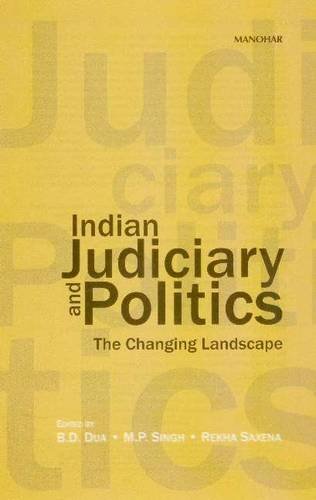Public Administration Its Growth and Development R K Arora (2 results)
Product Type
- All Product Types
- Books (2)
- Magazines & Periodicals
- Comics
- Sheet Music
- Art, Prints & Posters
- Photographs
- Maps
-
Manuscripts &
Paper Collectibles
Condition
- All Conditions
- New
- Used
Binding
- All Bindings
- Hardcover
- Softcover
Collectible Attributes
- First Edition
- Signed
- Dust Jacket (1)
- Seller-Supplied Images
- Not Printed On Demand
Seller Location
Seller Rating
-
Public Administration : Its Growth and Development
Published by Rajat Pub, New Delhi, 2006
Seller: Vedams eBooks (P) Ltd, New Delhi, India
Hardbound. Condition: As New. New. Contents Preface. 1. Definition of administration. 2. Public administration its growth and development. 3. The principles of administration. 4. Bureaucracy and development. 5. Structure of organisation public undertakings. 6. Personnel and personnel administration. 7. Public relations and publicity. 8. Structure of organisation boards and commissions. 9. Leadership policy formation and decision making. 10. Some attempts at administrative improvement. 11. O and M. 12. Administrative reforms in India. 13. Panchayati Raj in India. 14. Administration and finance. 15. Performance budgeting. Appendix. Index. The growth and development of public administration is to be seen in terms of the changing nature of organisations from small to big simple to complex local to national and international. The organisation is the key to public administration. Therefore the need to understand the organisation dynamics and various concepts regarding organisation. Thus this book aims at examining these issues. This will enable the reader a proper understanding of the growth and development of public administration. 312 pp.
-
Indian Judiciary and Politics : The Changing Landscape
Published by Manohar, New Delhi, 2007
ISBN 10: 8173047235ISBN 13: 9788173047237
Seller: Vedams eBooks (P) Ltd, New Delhi, India
Book
Hardbound. Condition: As New. New. Contents Acknowledgements. Contributors. Introduction. I. Judiciary and judicial activism 1. The struggle over judicial review Supreme Court and limited government/Douglas V. Verney. 2. Governance by judiciary into the next millennium/Rajeev Dhavan. 3. Bill of rights Judicial approach principles of interpretation and remedies the Indian experience/Soli J. Sorabjee. 4. Inconclusive overview of judicial activism in India/Mahendra pal Singh. 5. Judicialization of politics/Rajinder Sachar. 6. Public interest litigation Supreme Court in the era of liberalization/Prashant Bhushan. 7. Politics of judicial administration/R.K. Barik. II. Judiciary and Ecology 8. Environmental justice through public interest litigation/D.S. Sengar. 9. Supreme court environmental crusade enforcing CNG alternative for world's third most polluted city/Subhendu Rajan Raj. 10. Resolving river water disputes in India The Supreme court and the Narmada River Dams controversy/John R. Wood. III. Judiciary and secularism 11. Secular state in a hyper religious society the role of the judiciary/C.P. Bhambhri. 12. Secularism and justice a review of Indian supreme court judgements/Sanghamitra Padhy. IV. Judiciary and parliamentary local institutions 13. Parliamentary privileges and immunities in India An argument for codification/M.P. Singh. 14. Indian judiciary and local governments/George Mathew. V. Judiciary and central executive 15. Indian superior judiciary the selection and impeachment of judges/K.G. Kannabiran. 16. India a study in executive judicial relations revisited/B.D. Dua. 17. Supranational intergovernmental relations and the role of judiciary/Rekha Saxena. VI. Judiciary and reforms 18. Indian judiciary and the new economy/S.K. Verma. 19. Judicial reforms and market institutions the emerging scenario/Dolly Arora. 20. Reforms in the criminal justice system/V.K. Ohri. Index. Few will deny that the post emergency higher judiciary in India has earned widespread public acclaim for its innovative and creative jurisprudence notwithstanding the argument advanced by some critics that it has exercised excessive jurisdiction transgressing at times the executive and legislative domains contrary to the original checks and balances design of the constitution. While the issue of judicial restraint in the context of constitutional separation of powers deserves serious attention the fact of the matter is that juristocracy invariably triumphs when the elected representative in a democracy cannot be trusted to provide good and lawful governance. From this perspective the unprecedented judicializtion of politics and the growth of judicial activism in Indian seems to be an organic response to pressures within the political system itself. The contributors to the volume are well known scholars lawyers and academics. They reflect on the itinerary of higher judiciary and its contributions to constitutional law and public good contextualized for the developmental path of the political system since the commencement of the Republic in 1950. The papers cover a variety of topics judicial activism judiciary and ecology secularism parliamentary institutions central executive new economy and judicial reforms that focus primarily though not exclusively on the ramifications of judicial activism for Indian politics. 490 pp.



